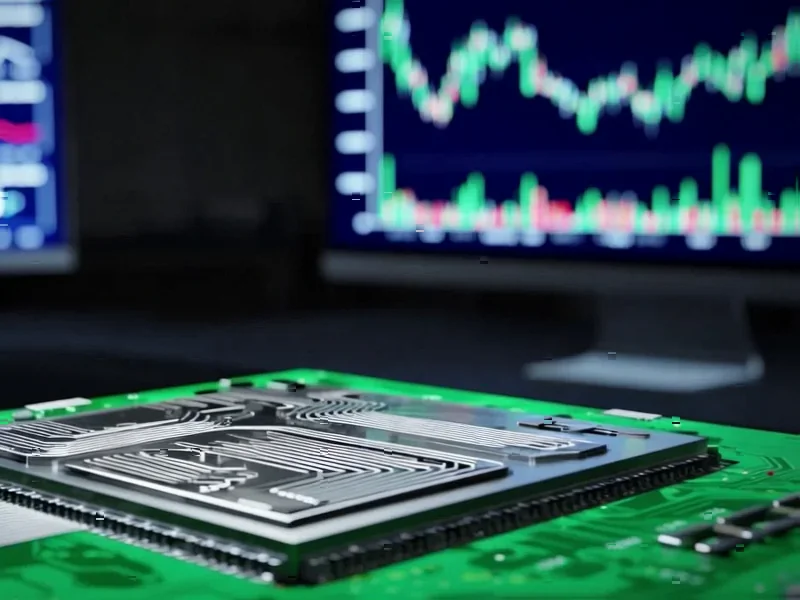According to Fast Company, Microsoft has received approval to ship more than 60,000 Nvidia AI chips to the United Arab Emirates, including the advanced GB300 Grace Blackwell processors, following licenses granted in September under what the company describes as “stringent” safeguards. The Redmond, Washington-based software giant will deploy these chips in data centers located in the Middle Eastern country, creating a significant AI infrastructure investment outside US borders. This development appears to directly contradict former President Donald Trump’s recent statements during a “60 Minutes” interview where he explicitly stated he would not allow Nvidia to sell its most advanced chips to China, though the UAE represents a different geopolitical context. The timing and scale of this approved shipment raise important questions about the consistency of US export control policies.
The Geopolitical Tightrope
This Microsoft-UAE arrangement represents a sophisticated balancing act in global technology policy. While the US maintains strict controls on advanced semiconductor exports to strategic competitors like China, it appears to be cultivating strategic partnerships with Middle Eastern allies through carefully managed exceptions. The UAE has positioned itself as a regional technology hub, investing heavily in AI infrastructure through initiatives like the UAE’s National Strategy for Artificial Intelligence. However, this creates a complex diplomatic landscape where the same technology deemed too sensitive for China is being deployed just miles from Iranian surveillance capabilities and in a region with complex relationships with both Western powers and Chinese interests.
The Illusion of “Stringent Safeguards”
Microsoft’s reference to “stringent safeguards” deserves critical examination. While the company hasn’t detailed these measures, historical precedent suggests that physical and digital controls on exported technology often prove porous over time. Once advanced AI chips are operational in UAE data centers, ensuring they aren’t accessed by unauthorized entities—whether through corporate partnerships, government pressure, or technical workarounds—becomes increasingly challenging. The GB300 Grace Blackwell chips represent some of Nvidia’s most advanced technology, capable of training frontier AI models that could have dual-use military applications. The technical specifications of these processors indicate they’re designed for massive-scale AI training, making them precisely the type of technology export controls were meant to protect.
Commercial Interests Versus National Security
This deal highlights the growing tension between American technology companies’ global ambitions and traditional national security concerns. Microsoft, like other US tech giants, is engaged in a fierce global competition for AI dominance, and restricting their ability to deploy infrastructure internationally puts them at a competitive disadvantage against companies from less restrictive jurisdictions. The 60,000-chip shipment represents billions of dollars in hardware and associated cloud services revenue, creating powerful commercial incentives to navigate export control frameworks. However, this creates a dangerous precedent where corporate revenue objectives could gradually erode the technological advantages that underpin US security interests.
The Contradiction in US Technology Policy
The apparent contradiction between this approved shipment and Trump’s stated position on chip exports reveals deeper inconsistencies in US technology transfer policy. Different administrations have struggled to balance competing objectives: maintaining technological superiority while enabling American companies to compete globally. The fact that licenses were approved in September—before the election cycle intensified—suggests there may be established processes for such exports that operate independently of political rhetoric. However, this creates uncertainty for technology companies trying to plan long-term international deployments when policy positions can shift dramatically based on political winds.
Middle Eastern AI Arms Race Implications
This massive infusion of AI computing power into the UAE will inevitably accelerate regional competition in artificial intelligence. Neighboring powers including Saudi Arabia, Israel, and Qatar are all pursuing their own AI ambitions, and Microsoft’s deployment could trigger a regional arms race for advanced computing infrastructure. The concentration of such capability in a small group of Middle Eastern nations raises questions about technological sovereignty and whether these investments will lead to indigenous innovation or simply create dependencies on Western technology providers. The geopolitical implications of AI dominance in strategically vital regions could reshape global power dynamics in unexpected ways.





Your article helped me a lot, is there any more related content? Thanks!